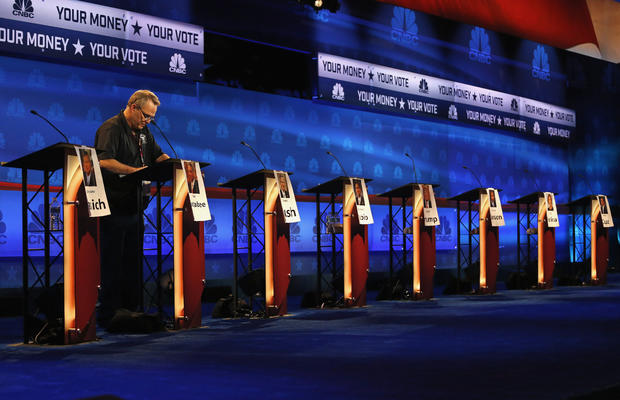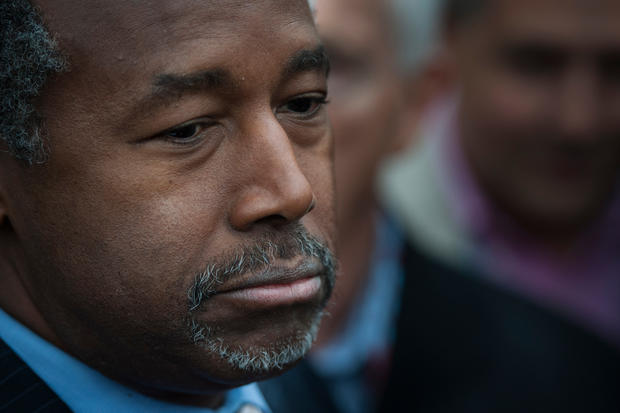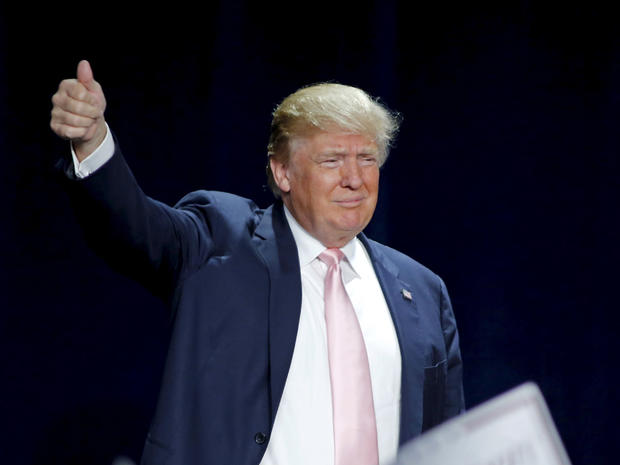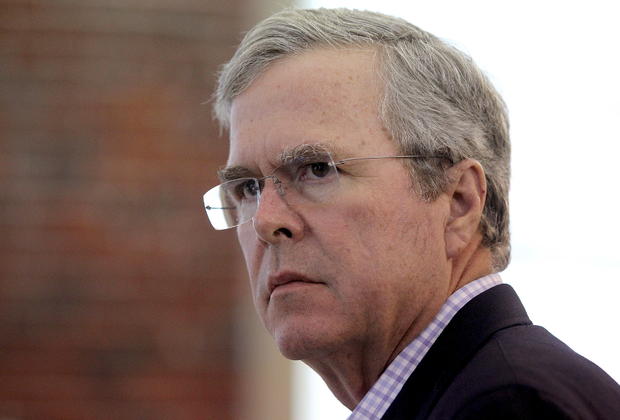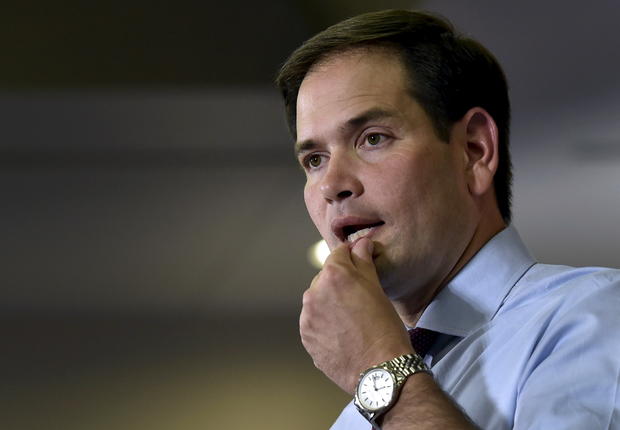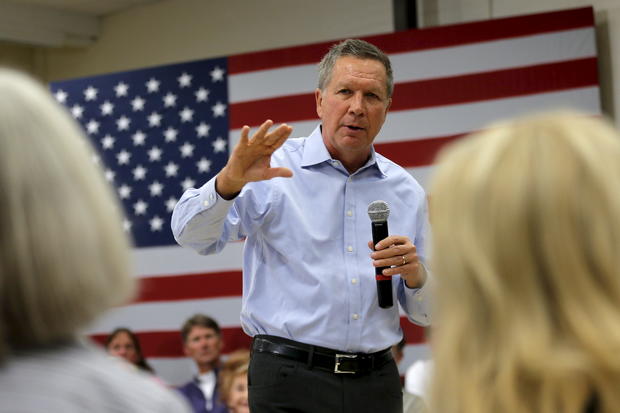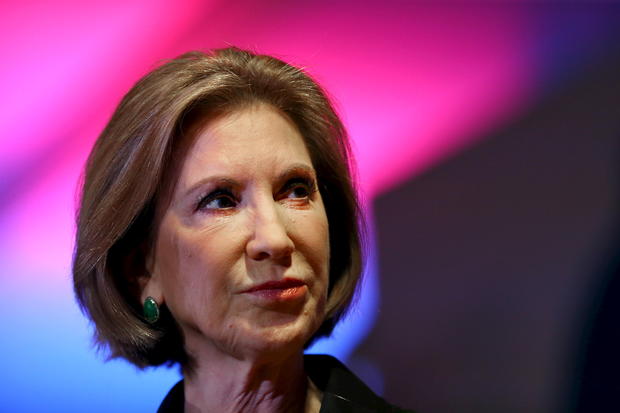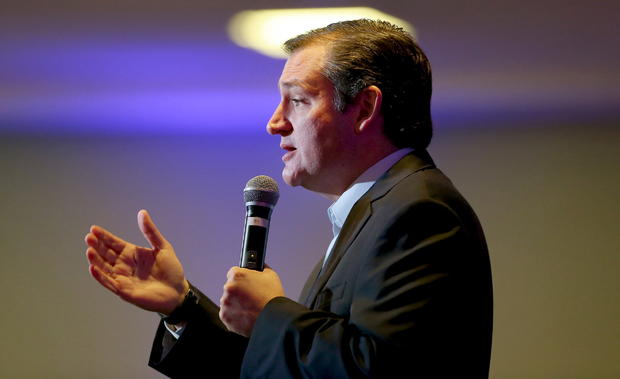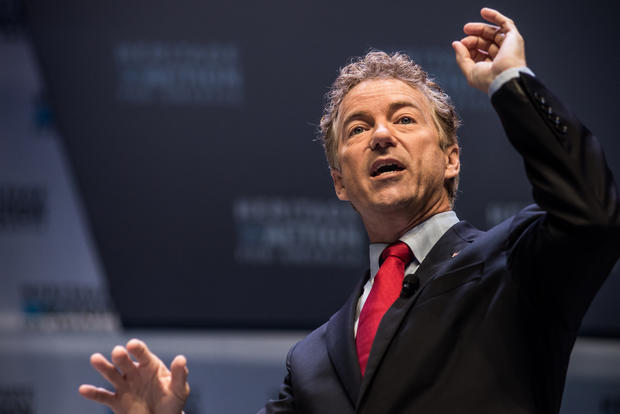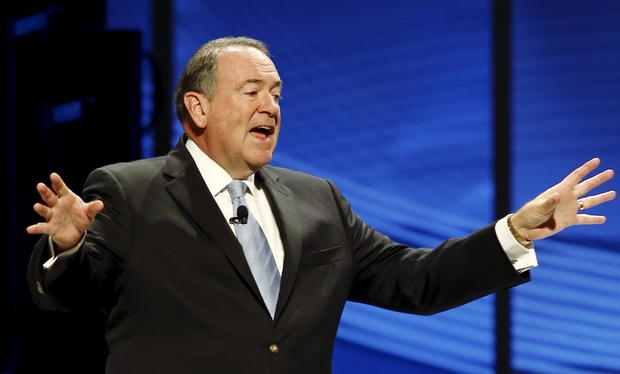For GOP hopefuls, ties to Big Money loom large
The official theme for tonight's Republican Presidential Debate -- "Your Money, Your Vote" -- is apt for two reasons: It speaks to ongoing public anxiety about the state of the economy, while also echoing the populist rhetoric that has been a hallmark of this year's race and that increasingly divides the GOP.
A litmus test, as the U.S. continues to recover from the 2008 financial crisis, is the relationship between the candidates and moneyed interests, notably Wall Street. With talk on both sides of the aisle about reining in the nation's biggest banks, Americans expressing concerns about the torrent of money into politics and broader concerns about the fate of the middle class, Big Money may amount to a political handicap.
"American voters never liked their candidates to be tied too closely to Wall Street. That may be a little more of the case now," said Peter Woolley, professor of political science for Fairleigh Dickinson University.
The banking and investment sectors alone are expected to spend $200 million during the 2016 electoral cycle.
Not surprisingly, self-styled political outsiders Ben Carson and Donald Trump have been loudest in highlighting their independence from special interests and expressing open hostility toward the status quo in Washington. To that end, they have emphasized how they they fund their campaigns to signal their political autonomy.
Read on to learn more about where the candidates are getting their money.
Ben Carson
Ben Carson, who has surged to the front of the pack for the Republican nomination, has put his political fate squarely in the hands of political donors.
Carson has raised $31 million through direct contributions, while Political Action Committees have brought in a total of nearly $7 million. His fundraising has been rooted, like Sen. Bernie Sanders, the independent from Vermont, in pulling many smaller contributions from retired people, individual supporters and small businesses.
Carson's national finance director is Dean Parker, the CEO of Vita Capital, an early-stage investment firm. Until this spring Carson was on the board of directors of Costco (COST) and the Kellogg (K).
No surprise, then, that Carson has played up his rags-to-riches story to underline his distance from the usual corridors of power. His made it to Yale Medical School despite a challenging childhood in Detroit and by age 33 was head of pediatric neurosurgery at Johns Hopkins. One of the nation's leading pediatric surgeons, he first won prominence after successfully separating conjoined twins.
Donald Trump
Donald Trump last week took the unprecedented step of asking nine PACs formed to back his election to disband and return the money to the contributors. From the start of the campaign, the real estate mogul has committed to self-fund his run because, as he has told crowd after crowd, he believes the money from vested interests corrupts the political process.
According to the Federal Election Commission, Trump's campaign has raised $5.8 million. But like many of his fellow candidates, in the run-up to formally jumping into the presidential race, Trump took lucrative engagements speaking to different groups.
In January, for instance, Trump got $100,000 to speak the Peoples Realty, while in April he earned another $100,000 to address the National Multifamily Housing Council. Both entities have set as a top legislative priority preserving a tax break for hedge fund, private equity and money managers, a loophole in the tax code that Trump has roundly criticized and pledged to roll back.
More generally, Trump has attacked crony capitalism and what he describes as excessive CEO pay, which has resonated with the Tea Party base.
Jeb Bush
Former Florida Governor Jeb Bush has long been in demand for his business advice and contacts. Not long after leaving office as governor, Bush went to work for Lehman Brothers and was paid $1.3 million a year until the investment bank failed in 2008. Bush continued the relationship with Barclays when it took over parts Lehman's operations that year, with his compensation rising to $2 million year.
According to a report issued by the federal bankruptcy examiner reviewing Lehman's 2008 demise, Bush met with Carlos Slim, the Mexican telecommunications billionaire, in hopes of persuading him to invest in the beleaguered bank. Bush also has served on the board of directors of the Canada-based Barrick Gold (ABX) and several U.S. investment limited liability corporations, as well as a director for the nonprofit Bloomberg Family Foundation.
Since 2007, Bush earned $10 million making speeches for entities including the Mortgage Bankers Association and Tiger 21, a network of high net worth investors. Tiger 21 (The Investment Group for Enhanced Results for the 21st Century) was founded by David M. Rubenstein, a lawyer and former official in the Carter Administration, and by Penny Pritzker, a major Democratic donor and now the U.S. Secretary of Commerce.
In February, Bush was paid nearly $30,000 to answer questions for Fox News personality Greta Van Susteren at Tiger 21's annual conference.
The Bush campaign has raised close to $25 million, while the Bush-linked PAC Right to Rise has pulled in $103 million, including $26 million from hedge funds, private equity firms and the securities industry, according to the Center for Responsive Politics. Bush's finance chair is veteran campaign bundler Woody Johnson, owner of the New York Jets and patriarch of the family that founded Johnson & Johnson.
Marco Rubio
Senator Marco Rubio has raised more than $15 million for his campaign, while his Conservative Solutions PAC has pulled in $17.3 million, including $3 million from Oracle (ORCL) and $500,000 donations from broker-dealer LPL Investment Group and investment partnership firm Privet Fund Management.
According to the Center for Responsive Politics, Rubio's biggest campaign donation this cycle was the nearly $80,000 he received from Goldman Sachs (GS). Of Rubio's donations, 22 percent have come from his home state of Florida.
John Kasich
Prior to being elected the governor of Ohio in 2010, John Kasich was a managing directors at Lehman Brothers. That earned him $1.4 million in 2008, the year the investment bank collapsed.
Kasich, who previously served for close nearly 20 years in the U.S. House of Representatives before leaving Congress in 2001, has raised $4.3 million. according to the Center for Responsive Politics. More than three-quarters of his contributions have come in the form of large donations, with the biggest being $35,000 from Medical Mutual, Ohio's largest insurance company. By professional category, lawyers gave most, followed by real estate professionals.
Gary Weinstein, Kasich's boss at Lehman, last year told the Cleveland Plain Dealer that Kasich was pitched to his Lehman colleagues as someone whose presence in a meeting with clients would ensure there was "gravitas in the room." But Kasich has sought to downplay his role at Lehman, noting that he was just one of 700 managing directors at the bank.
Carly Fiorina
Like Donald Trump, Carly Fiorina has staked her campaign to her record in business, notably her controversial tenure leading Hewlett-Packard (HPQ).
Fiorina's extensive list of paid speaking engagements since leaving corporate life includes earning $48,000 last year for a speech she gave to Wells Fargo (WFC) executives, an $80,000 honorarium from Korea Economic Magazine in 2014 and $48,000 from investment bank BNP Paribas that same year, according to the Federal Election Commission.
Fiorina's PAC, Carly For America, has raised $3.5 million, including $1.5 million from Chartwell Partners, an executive search firm, as well as six-figure contributions from investment firms and hedge funds. Fiorina also got a $500,000 donation from Keep The Promise 1, a PAC that's also supporting Sen. Ted Cruz for president.
Ted Cruz
New Jersey Gov. Chris Christie isn't the only GOP hopeful to benefit from a spouse who has made her mark on Wall Street. Texas Sen. Ted Cruz's wife Heidi Nelson Cruz is a managing director at Goldman Sachs.
Cruz's campaign and PAC operations have raised an impressive $65 million dollars. The junior senator from Texas has managed to get some of the largest single donations of the primary season, including a $15 million donation to one of his PACs from the Wilks family, who made their fortune from gas exploration and real estate.
The Cruz campaign has raised close to $700,000 from lawyers, as well as a half-million dollars from the securities industry.
Some of Cruz's political allies come from the world of finance and consulting. His finance chairman is Willie Langston, chairman of Avalon Advisors, a global investment firm. The campaign is chaired by Chad Sweet, who served as chief of staff for former Homeland Security Secretary Michael Chertoff and went on to partner with Chertoff to form a global security firm that now also advises on merger and acquisitions.
Rand Paul
Like Ted Cruz, Sen. Rand Paul has tried to cultivate a sense of being outside the political mainstream. And like his father, former Rep. Ron Paul, that has meant seeking to impose political oversight over the Federal Reserve, which both men consider too secretive and too closely aligned with the nation's largest banks.
The elder Paul is now promoting an investment strategy he says will help Americans withstand a global currency crisis.
Rand Paul's America's Liberty PAC has raised just over $3 million, with $1.25 million of that coming from the securities and investment sector. Individual donors include Mason Capital Management, a privately held hedge fund that chipped in a $250,000 contribution, and Jeff Yass, a managing director at investment management firm Susquehanna International Group, who gave $1 million.
Mike Huckabee
Former Arkansas Gov. Mike Huckabee has raised $3.2 million for his 2016 campaign, and outside PACs have amassed a $4.5 million war chest.
Huckabee's biggest corporate booster is Mountaire Corp., a major chicken and poultry processor. Runner-up is Herschend Family Entertainment, the nation's largest family-owned theme park business.
Chris Christie
New Jersey Gov. Chris Christie's ties to Wall Street are familial. His wife Mary Pat was a vice president at investment firm Cantor Fitzgerald until 2013, when she was hired as a managing director at New York investment firm Angelo Gordon & Co., a post from which she resigned in May.
Of all the 2016 GOP presidential hopefuls, Christie has been the most successful pitchman when it comes to raising money on Wall Street. In his role as chair of the Republican Governors Association, in 2014 he raised well over $100 million for the group. Under his leadership of the RGA, billionaire hedge fund manager Paul Singer of Elliot Management kicked in $2.8 million and Kenneth Griffin's Citadel contributed $2 million.
The Governor's America Leads and Leadership Matters for America PACS have drawn millions of dollars in contributions for Christie from asset management and private equity firms. His campaign finance co-chairs include Meg Whitman, CEO of Hewlett-Packard; Ken Langone, founder of Home Depot (HD); and Steven A. Cohen, founder of defunct hedge fund SAC Capital Investors.
